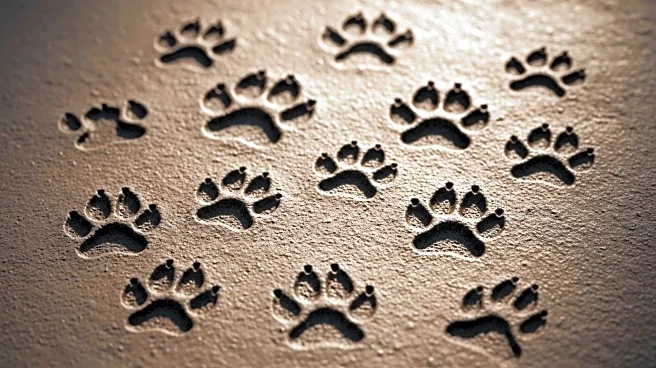What's Happening?
A letter from David Fishel in Indianapolis discusses the theory that ancient humans may have domesticated wolves by raising them as pets, leading to the eventual domestication of dogs. Fishel suggests that similar practices could have been applied to other species, such as ungulates, where hunters might have raised juvenile animals for their products as adults. This idea is based on the bonding behavior observed in white-tailed fawns with human caretakers, indicating potential for domestication.
Why It's Important?
The exploration of domestication pathways provides insights into human-animal relationships and the development of agriculture and animal husbandry. Understanding these processes can shed light on the evolution of human societies and their reliance on domesticated animals for survival and economic development. The concept of domestication extends beyond dogs, suggesting broader implications for how humans have historically interacted with and utilized animal species.
Beyond the Headlines
The domestication of animals has ethical and cultural dimensions, influencing how societies view and treat animals. The historical context of domestication raises questions about the impact of human intervention on animal behavior and ecosystems. As modern societies continue to rely on domesticated animals, these discussions remain relevant in addressing animal welfare and sustainable practices.









